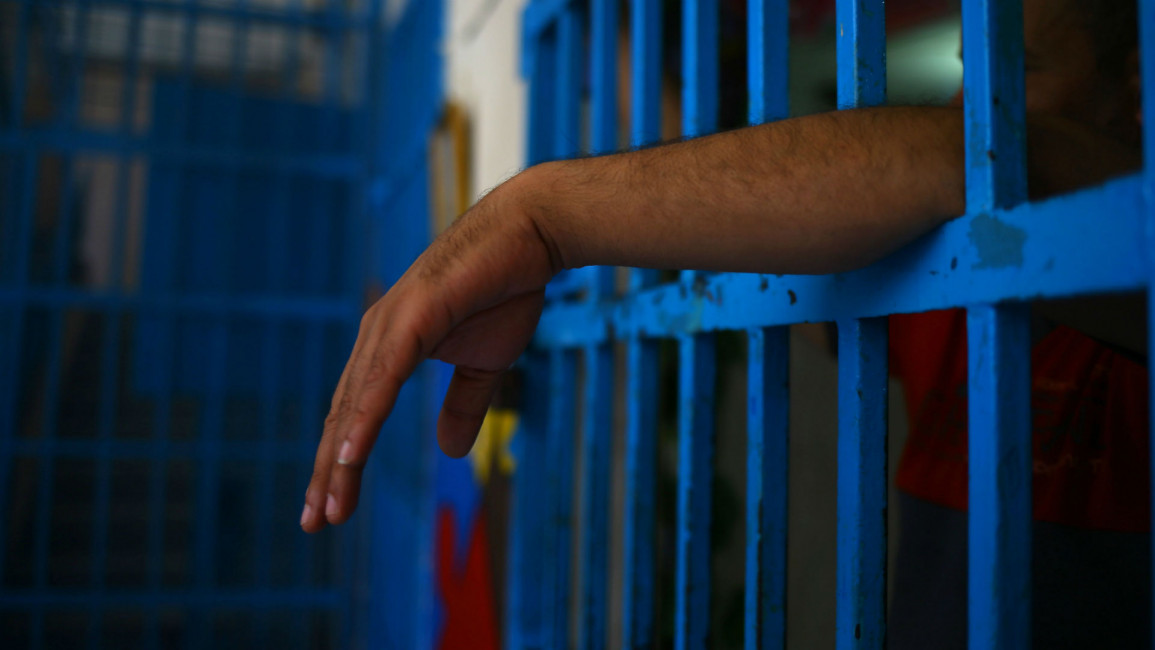Detainees in notorious Egyptian prison 'pushed to breaking point by torture, inhumane conditions': Amnesty
Amnesty International has called on Egypt to end "cruel and inhumane" conditions for political detainees in a notorious prison, more than a hundred of whom have been on hunger strike for more than six weeks.
In a statement on Wednesday, the human rights organisation urged the Egyptian regime to improve the "squalid and inhumane conditions" in which detainees imprisoned in the notorious al-Aqrab (scorpion) prison live, and to allow the political detainees family visits.
Around 130 detainees in Aqrab began a hunger strike more than six weeks ago in protest against their treatment.
The authorities have allegedly responded by beating hunger-striking detainees and subjecting them to electric shocks, according to a statement issued by detainees.
At least 10 of the hunger-strikers were blindfolded and taken to special cells which they are not allowed to leave throughout the day.
Several detainees in the prison have previously gone on hunger strike in an attempt to secure family visits. Despite assurances that led to the end of those strikes, family visits have not yet been granted to detainees.
The majority of the Aqrab prisoners on hunger strike - some of whom have been jailed for more than two years without a single visit from family or lawyers - were subject to enforced disappearances of periods, according to Amnesty.
An enforced disappearance is when someone is secretly abducted or imprisoned by the state or a political organisation, followed by a refusal to acknowledge the person's whereabouts or fate.
Read more: My dad came to Cairo for a family holiday. Instead, he disappeared
Some were left waiting up to 155 days before their detention was publicly acknowledged.
Many allege that they suffered torture at the hands of Egypt's security services. Family members also say they were assaulted and insulted by police and court security officials when they tried to gain access to the courtroom.
Conditions in Aqrab prison are dire, according to Amnesty.
Detainees are held in "overcrowded cells infested with mosquitos, flies and other insects".
Those cells can reach temperatures of over 40 degrees celsius in the summer.
Amnesty also alleges that the detainees are denied adequate health care and face restrictions on their access to clothes, medicine and food from outside the prison.
Such conditions and the continued, systematic denial of family visits have led around 130 detainees to go on hunger strike this year.
"The Egyptian authorities have pushed scores of detainees at al-Aqrab to breaking point. The combination of squalid and inhumane detention conditions and the denial of family visits and access to their lawyers - in some cases for over two years - has created an unbearable situation for detainees," Magdalena Mughrabi, Deputy Middle East and North Africa Director at Amnesty International, said in a statement.
"By refusing to allow detainees to see their families, the Egyptian authorities are flagrantly flouting both Egyptian and international law and displaying callous cruelty. Instead of prolonging their suffering, the Egyptian authorities should immediately end this practice and allow family visits for inmates at al-Aqrab."
She added that detainees must be provided with "adequate health care, food, and are held in sanitary conditions in properly ventilated cells in accordance with international law", and that allegations of torture and other abuses should be indepdently investigated.



